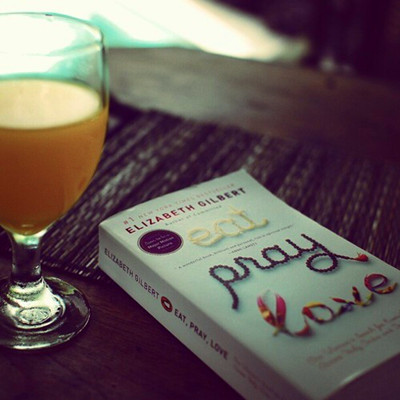(单词翻译:单击)

Richard from Texas was married once, too. He had two sons, both of whom are grown men now, both close to their dad. Sometimes Richard mentions his ex-wife in some anecdote or other, and he always seems to speak of her with fondness. I get a bit envious whenever I hear this, imagining how lucky Richard is to still be friends with his former spouse, even after separating. This is an odd side effect of my terrible divorce; whenever I hear of couples split-ting amicably, I get jealous. It's worse than that—I've actually come to think that it's really ro-mantic when a marriage ends civilly. Like, "Aw . . . how sweet . . . they must've really loved each other . . ."
德州理查从前也结过婚。他有两个儿子,如今已长大成人,跟他们的父亲都很亲近。有时候,理查在某段故事里提起前妻,说到她的时候,似乎总是充满怀念。听他这样讲,我有些羡慕,心想尽管已分手,理查仍能与前妻为友真是幸运。这是我的可怕离婚所产生的奇怪影响;每逢听见夫妻和平分手,就让我心生嫉妒。更糟的是,我现在简直认为和和气气结束婚姻真是浪漫,像是:“噢……真好……他们肯定深爱过对方。”
So I asked Richard one day about it. I said, "It seems like you have fond feelings toward your ex-wife. Are you two still close?"
于是有一天我问了理查。我说:“你似乎很怀念前妻。你们俩是否还很亲近?”
"Nah," he said casually. "She thinks I changed my name to Motherfucker."
“才不,”他漫不经心地说,“她认为我已经改了名,叫作死浑球。”
Richard's lack of concern about this impressed me. My own ex-spouse happens to think I changed my name too, and it breaks my heart. One of the hardest things about this divorce was the fact that my ex-husband never forgave me for leaving, that it didn't matter how many bushels of apologies or explanations I laid at his feet, how much blame I assumed, or how many assets or acts of contrition I was willing to offer him in exchange for departing—he cer-tainly was never going to congratulate me and say, "Hey, I was so impressed with your gener-osity and honesty and I just want to tell you it's been a great pleasure being divorced by you." No. I was unredeemable. And this unredeemed dark hole was still inside me. Even in mo-ments of happiness and excitement (especially in moments of happiness and excitement) I could never forget it for long. I am still hated by him. And that felt like it would never change, never release.
理查的淡漠让我刮目相看。我的前夫正巧也认为我改了名,使我心碎。这场离婚最令人难过的是,我的前夫未曾原谅我的离去,无论我把多少道歉和解释献在他的脚跟前,无论我承担多少谴责,无论我愿意给他多少资产、表现出多少悔恨,作为放我走的条件——他永远也不可能祝贺我,说:“嘿,你的慷慨与诚实打动了我,我只想告诉你,你提出离婚真是我的荣幸。”不。我不可救药。而这无可挽回的黑洞依然深藏我心,即使在快乐兴奋的时刻(尤其在快乐兴奋的时刻),过没多久我就会想起:“他还在恨我。”感觉永远如此,永不得解脱。
I was talking about all this one day with my friends at the Ashram—the newest member of whom is a plumber from New Zealand, a guy I'd met because he'd heard I was a writer and he sought me out to tell me that he was one, too. He's a poet who had recently published a terrific memoir in New Zealand called A Plumber's Progress about his own spiritual journey. The plumber/poet from New Zealand, Richard from Texas, the Irish dairy farmer, Tulsi the In-dian teenage tomboy and Vivian, an older woman with wispy white hair and incandescently humorous eyes (who used to be a nun in South Africa)—this was my circle of close friends here, a most vibrant crowd of characters whom I never would have expected to meet at an Ashram in India.
有一天我跟道场里的朋友们说起这一切,这群朋友的最新成员是位来自新西兰的水管工,因为他听说我是作家,于是找到我,说他也是作家,于是我认识了他。他是个诗人,最近在新西兰出版了一本绝妙的传记《水管工的历程》(APlumber,描述自己的心灵之旅。新西兰诗人/水管工、德州理查、爱尔兰酪农、印度野丫头图丝和一位白发稀疏、眼神幽默的年长妇女薇薇安(从前在南非当修女)——是我在这里的好友圈,一群充满活力的人物,我从没预期会在印度道场遇见这些人。


